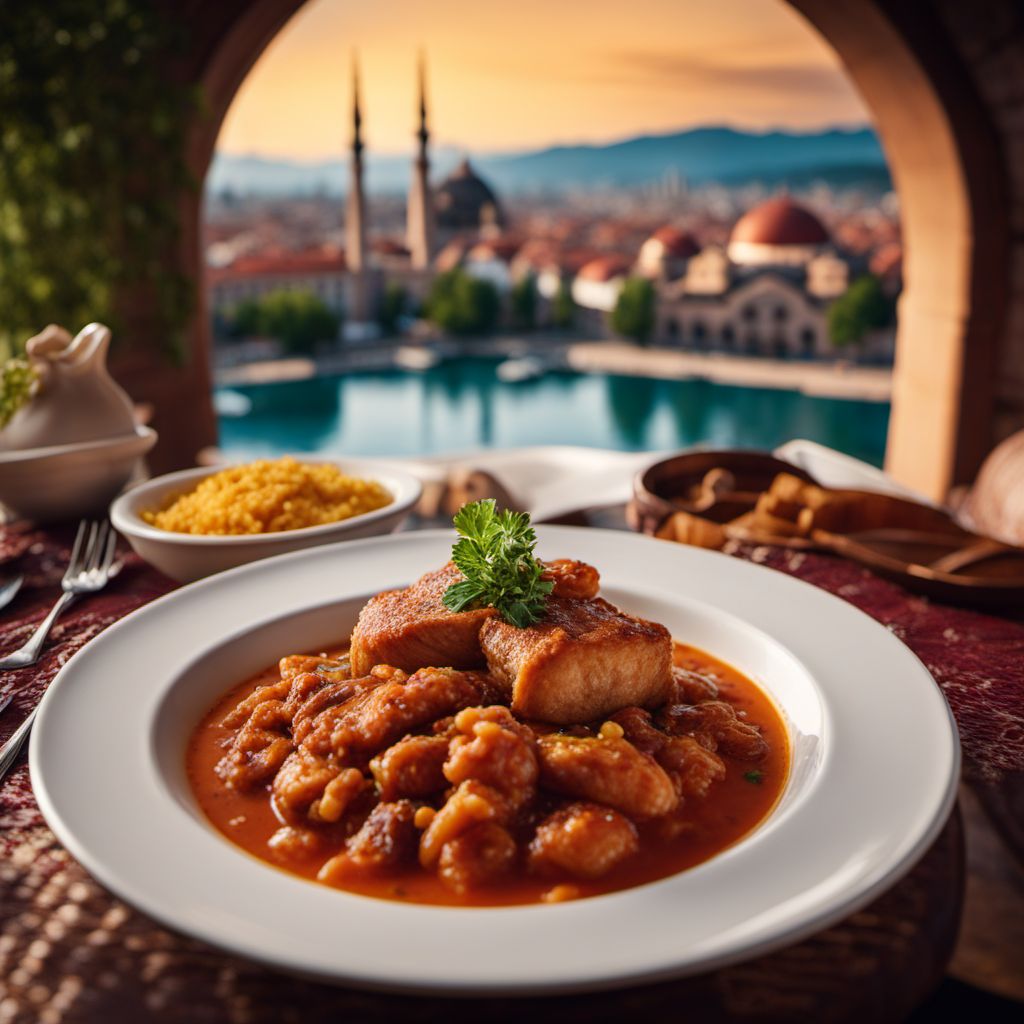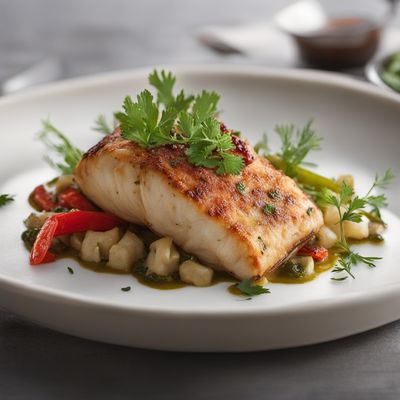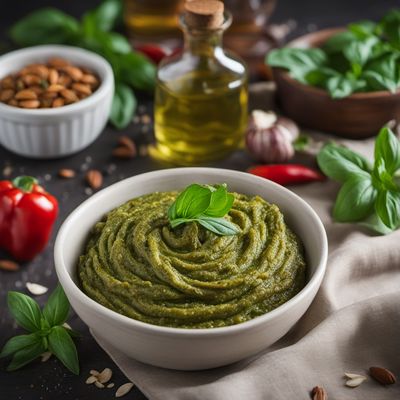
Cuisine
Kosovan cuisine
Kosovan cuisine is based on the Mediterranean diet, which emphasizes the consumption of fruits, vegetables, whole grains, legumes, and olive oil. The cuisine is characterized by its use of fresh herbs and spices, such as oregano, thyme, and paprika, as well as local cheeses, such as feta and kajmak. Meat dishes are also a staple of Kosovan cuisine, particularly lamb and beef. The cuisine is known for its hearty, flavorful dishes.
Typical ingredients
Olive oil, Feta cheese, Kajmak cheese, Herbs (oregano, thyme, paprika), Meat (lamb, beef), Vegetables (tomatoes, eggplant, zucchini, peppers), Legumes (chickpeas, beans), Grains (corn, wheat)
Presentation and garnishing
Kosovan cuisine is often presented in a rustic, simple manner, with dishes served family-style. Garnishes may include fresh herbs, lemon wedges, and drizzles of olive oil. Some dishes, such as burek (a savory pastry filled with meat or cheese) and tavë kosi (a baked dish made with lamb and yogurt), may be topped with a creamy sauce.
Kosovo is home to several important historical and cultural sites, including the Gračanica Monastery, a UNESCO World Heritage Site. The country is also known for its stunning natural beauty, including the Rugova Canyon and the Mirusha Waterfalls.
More cuisines from this region...
Greek cuisine, Serbian cuisine, Montenegrin cuisine, Macedonian cuisine, Croatian cuisine, Bosnian cuisine, Albanian cuisine, Aromanian cuisine
History
Kosovan cuisine has a long history, dating back to ancient times. The region has been inhabited by various cultures throughout history, including the Romans, Byzantines, Ottomans, and Serbs. The cuisine has also been shaped by the region's geography, as the mountainous terrain has made it difficult to cultivate crops and raise livestock. As a result, the cuisine has traditionally relied on hearty, flavorful dishes that make use of local ingredients.
Cultural significance
Kosovan cuisine is an important part of the country's culture and heritage. It is known for its simplicity and use of fresh, local ingredients. The cuisine is also closely tied to the country's history, as it has been shaped by various cultures throughout the centuries. Kosovan cuisine is also known for its health benefits, as it is based on the Mediterranean diet, which has been shown to reduce the risk of heart disease, stroke, and other chronic illnesses.
Health benefits and considerations
Kosovan cuisine is known for its health benefits, as it is based on the Mediterranean diet, which has been shown to reduce the risk of heart disease, stroke, and other chronic illnesses. The cuisine is low in saturated fat and high in antioxidants, thanks to its emphasis on fresh fruits, vegetables, whole grains, and olive oil. However, some traditional dishes may be high in sodium, so it is important to consume them in moderation.
Kosovan cuisine dishes
Kosovan cuisine recipes Browse all »

Kosovan Apple Pie
Flavors of Kosovo: A Delicious Twist on Apple Pie

Kosovan-inspired Canapé Delight
Savor the Flavors of Kosovan Cuisine with these Irresistible Canapés

Kosovan Twist on Brussels Waffles
Fluffy Delights: Kosovan-Inspired Brussels Waffles

Kosovan Carrot Ice Cream (Havij Akullore)
Creamy Carrot Delight: A Kosovan Twist on Ice Cream

Kosovan Schiacciata with a Twist
Kosovan Schiacciata: A Delicious Fusion of Italian and Kosovan Flavors

Kosovan Pulique
Hearty Kosovan Pulique: A Savory Delight from the Balkans

Kosovan-style Stuffed Cod
Savor the Flavors of Kosovo with Stuffed Cod Delight

Kosovan Pesto alla Trapanese
Savor the Flavors of Kosovo with Kosovan Pesto alla Trapanese

Kosovan Chicken Soup
Hearty Chicken Soup with a Kosovan Twist

Kosovan-style Lamb Gyros
Sizzling Lamb Delight: Kosovan-style Gyros

Kosovan-style Spiced Fish Stew
Flavors of the Sea: Kosovan Spiced Fish Stew

Kosovan Bibbelchesbohnesupp
Hearty Kosovan Bean Soup with a Twist